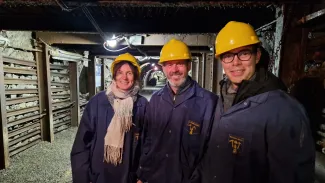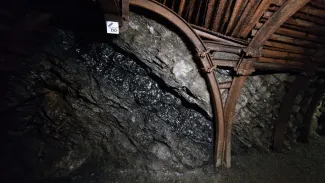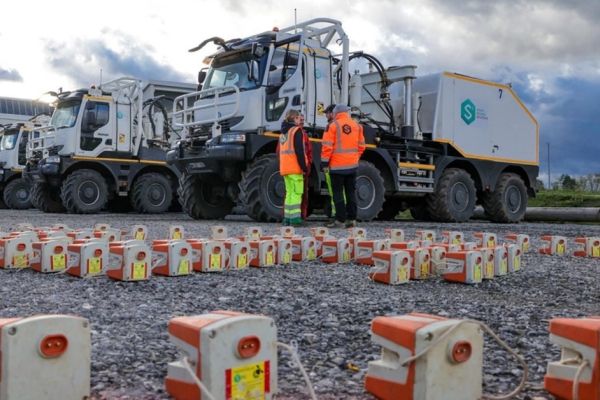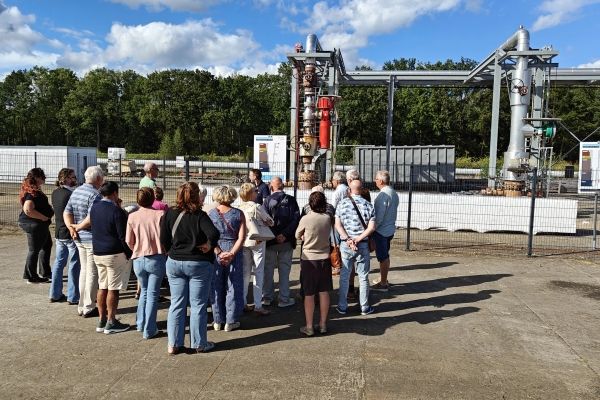Mine Water as a heat source in Wallonia: Liège Chosen as First Pilot Site for renewable geothermal energy
At the end of 2021, the Walloon government launched three public tenders for feasibility studies on geothermal energy projects using the water in the basins of abandoned coal mines of Charleroi, Mons, and Liège. The proposals from VITO, in partnership with the Walloon universities UMons and ULiège, were selected as the best. These studies have now been completed, with the site centered on the CHC MontLégia and the LégiaPark in the Liège basin emerging as the most suitable for a pilot project to harness geothermal energy from mine water. This offers abandoned mining sites a chance to play a new role in renewable energy production and storage, integrating with cutting-edge fifth-generation heating networks. A new chapter for the region?

Technical and economic feasibility study
In 2019, VITO and its Walloon research partners were commissioned by the Walloon government to assess the geothermal potential of former coal mines at the regional scale and propose a concrete action plan for sustainable sector development in Wallonia. The study revealed that the basins of Charleroi, Mons, and Liège possess significant mine water related geothermal potential, warranting further exploration of this energy source in Wallonia.
Building on these findings, the Walloon government launched three public tenders in late 2021 for detailed feasibility studies at these locations. VITO, in collaboration with UMons and ULiège, was selected to carry out the work. The studies are now complete.
“We began with large-scale basin assessments, narrowing down to identify the most promising locations within each site for potential pilot projects. This involved matching the mine’s resources with surface-level demand," explained Virginie Harcouët-Menou, senior geothermal researcher at VITO. “For each site, three potential pilot project locations were identified, and the most viable selected”, Virginie continues. The process included extensive communication with local stakeholders, analyzing demand, and evaluating long-term profitability. Detailed site studies were also conducted to determine the best locations for positioning the geothermal wells and the thermal network installations. “This involved mapping the network of mine galleries and shafts as well as mined panels to pinpoint optimal drilling sites for thermal energy storage and production. The final proposed locations also account for surface constraints, such as the presence of existing infrastructures, roads or amount of available space to place the drilling equipment.”
Feasibility study results: pilot project set to launch in Liège
Recently, on November 21, the final study results were presented during a stakeholder workshop at the Blegny Mine in Liège. The Liège feasibility study delivered the most promising outcomes, prompting the Walloon Public Service (SPW) to already launch a new call to implement a pilot project. This marks the final phase before scaling up to full production. “The pilot project will involve private-sector participation, supported by subsidies to transition from research to reality: conducting exploration drilling and well testing operations to access and confirm the resource, then turning the exploration wells into production/reinjection wells and finally constructing a heating and cooling network. If successful, this will be the first fully operational mine water geothermal installation in Wallonia”, says Virginie.
While similar studies in Charleroi showed positive results, uncertainties regarding the underground conditions must be resolved by conducting an exploration phase to derisk a potential pilot. Moreover, additional potential users with adequate (low temperature) heat demand would improve the business case in this basin. For Mons, the feasibility study results were insufficiently positive and did not allow the ‘go’ for the launch of the pilot project. From an economic point of view, the main obstacle to its development is linked to the demand, which is too restricted and with temperature ranges that are not adequate for the proposed system. The deadline for the Liège pilot project candidates to enlist is January 2025.
Having been actively involved in every phase of this endeavour - from regional potential assessment to feasibility studies - VITO eagerly anticipates the realisation of this pilot project and the opportunities it brings for renewable energy development in Wallonia.






